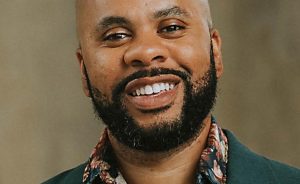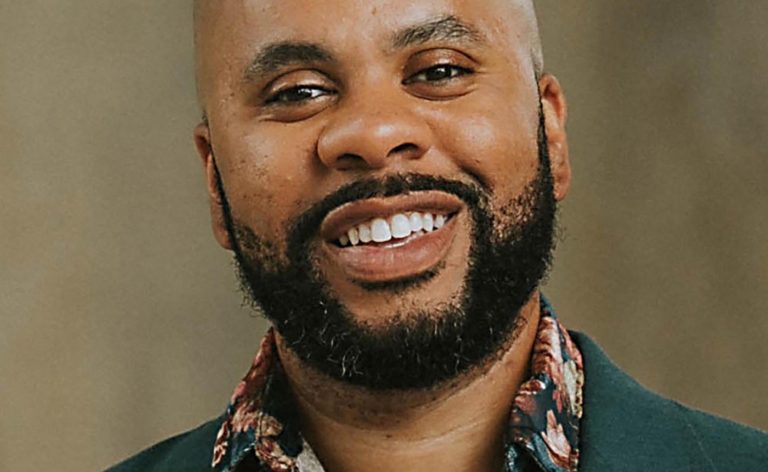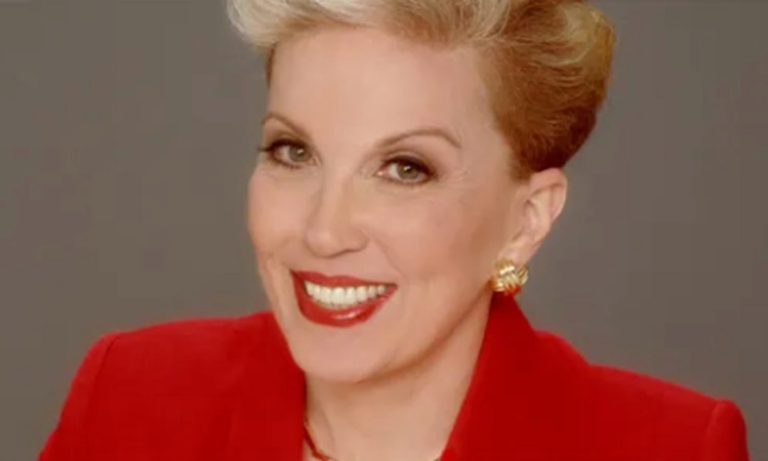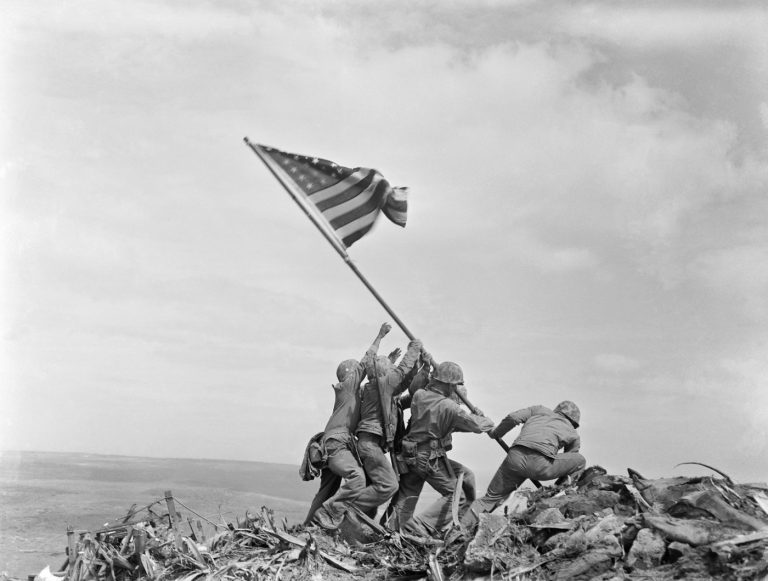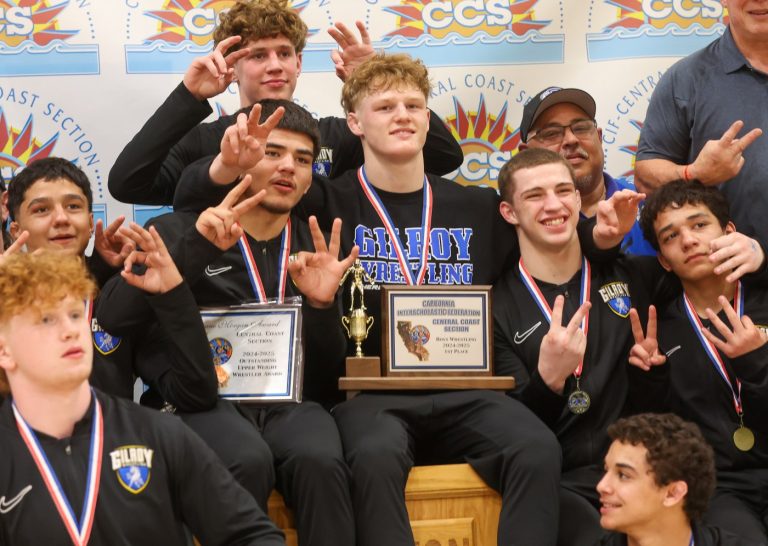Lashinda Demus was busy coaching in March 2023 when she received a text from a friend.
“Congratulations!” the message said.
“Congratulations?” Demus responded.
“I didn’t even have a clue what he was talking about,” Demus, the Inglewood native and former Long Beach Wilson High School standout hurdler, recalled Wednesday.
It wasn’t until her friend forwarded her a news report that Demus learned that the International Olympic Committee had elevated her to gold medalist for the 400 meter hurdles at the 2012 Olympic Games in London because of a doping violation by Russia’s Natalya Antyukh, the winner in London.
“I found out when everybody found out,” Demus said. “Which I thought was kind of wild. I didn’t get a heads up for anything.”
Demus will finally receive her gold medal on Aug. 9 in Paris in a special and groundbreaking event at Champions Park beneath the Eiffel Tower in the first ever medal reallocation at the Summer Olympic Games.
The IOC’s confirmation of the ceremony came Wednesday, 4,384 days after Antyukh held off Demus by a mere seven-hundredths of a second, the blink of an eye, in London.
“This broke my heart as I knew I was the best runner in the race,” Demus said. “Once I get to Paris, for the Olympic Medal Ceremony, my broken heart will finally be healed.”
The healing process, the push to get the IOC to recognize Demus and other Olympic athletes deprived of medals and their proper standing by drug cheats in a manner worthy of their achievement was driven by Demus.
Thomas Bach’s presidency of the IOC has been marked a repeated failure to effectively address Russia’s decades long systemic state-sponsored doping program and the impact it has had on international sports and athletes like Demus.
IOC officials, Demus said “are probably just doing their job, trying to push things through. You’re trying to hit deadlines and I get it. And I think that’s why it’s necessary for someone like me to help and liaison through this process because I completely understand and get where an athlete is coming from. The reason that this is going on is that I simply trailblazed this. I wanted this to be made right.”
Demus, like many in the sport, had doubts Antyukh, who had beaten the American, then reigning World champion, just once in eight races prior to the Olympic final and had not beaten her at all since July 2010.
“But you can’t assume someone is doping just because she beat you,” Demus said. “That’s a crazy thought. So I left it alone. I accepted that I lost and got my silver medal.”
But Antyukh was named in a 2016 investigation into Russian doping by Canadian attorney Richard McLaren and commissioned by the World Anti-Doping Agency. In April 2021 the Court of Arbitration for Sport handed Antyukh, who had since retired, a four-year ban but declined to strip her of her Olympic medals.
It wasn’t until December 2022 that the Athlete Integrity Unit, the agency overseeing anti-doping for World Athletics, international track and field’s governing body, stripped Antyukh of the gold medal and declared Demus the Olympic champion.
“The AIU remains committed to investigating all cases of potential violations and securing the appropriate outcomes,” said AIU chief Brett Clothier at the time. “The integrity of the sport of athletics is our utmost priority and we are pleased, in this instance, that athletes who competed fairly at the highest level will ultimately be acknowledged as the rightful medal winners.”
The IOC, however, didn’t display a similar sense of urgency.
It took Bach and the IOC another three months to finally elevate Demus to Olympic champion status.
It would be even more months before she heard anything from the IOC.
“It was months,” Demus said, “definitely not weeks.”
There were no congratulatory texts from the IOC. No emails discussing medal ceremony options or even confirming the IOC decision.
“No official phone call,” Demus said. “That was concerning. Very concerning.
“I haven’t received any official documents. How do I know this is real?”
She recalled the IOC’s handling of her friend Adam Nelson’s case. Nelson finished second in the 2004 Olympic shot put final. Eight years later it was revealed that the winner, Yuriy Blonoh of Ukraine, tested positive for banned performance enhancing substances. It would be another year before Nelson was finally awarded his gold medal at a Burger King at a food court in Atlanta’s Hartsfield International Airport.
“That has always been in the back of my mind,” Demus said referring to the Nelson debacle. “If they approach me with this, I’m going to be ready. Because this is not happening that way.”
Demus retained Javier Rubinstein, an attorney with years of experience handling international arbitration.
“I knew right off the top I needed legal guidance,” she said.
Finally, the IOC got back to Demus.
Demus had two options, the IOC said. She could receive her medal at the U.S. Championships or the World Championships. Whatever she picked, the IOC added, they needed her to make a decision right away.
“They wanted all these answers to these questions like instantly,” she said. “And I was like, ‘This is crazy, I can’t even. I have things to work through. I have kids who will travel with me. I have family members. I felt like I was being rushed. You can’t rush. I’d waited 12 years and now I’m being rushed to make a decision. No, that’s not happening that way.”
Related Articles
Gymnastics star Gabby Douglas pulls out of US Championships, ending her bid for a third Olympics
Gilroy’s Nola Matthews faced mental health challenges head-on. Now she’s nearing her Olympic dream
Mary Lou Retton slams those who questioned her lack of insurance, $459,000 fundraiser
Special Olympics Northern California at risk of losing more than half its budget in Silicon Valley due to county fiscal woes
California artistic swimming coach on U.S. Olympic staff is suspended amid investigation of abuse complaints
For the next year, Demus and Rubinstein went back and forth with the IOC.
“I’m the one who kind of orchestrated the whole thing,” she said. “So I was the one who was approving, arguing or disagreeing to different things that happened.”
Eventually she prevailed.
“If I was competing in an international competition with billions of people watching I want to receive my medal again in the same kind of platform,” Demus said “and that was my main message to them.”
And so the evening of Aug. 9 with the world watching, beneath the Eiffel Tower, one of the planet’s most iconic and recognizable landmarks rising above the Olympic city to the stars, a monument, the author Natalie Lloyd once said, of “steel and lace,” a gold medal will finally be placed around the neck of the elegant and determined hurdler who personified both.
“This is as close as you can get,” Demus said, “to making it right.”
Friends of Demus have started a page to raise funds to send Demus’ family to Paris for the ceremony.


